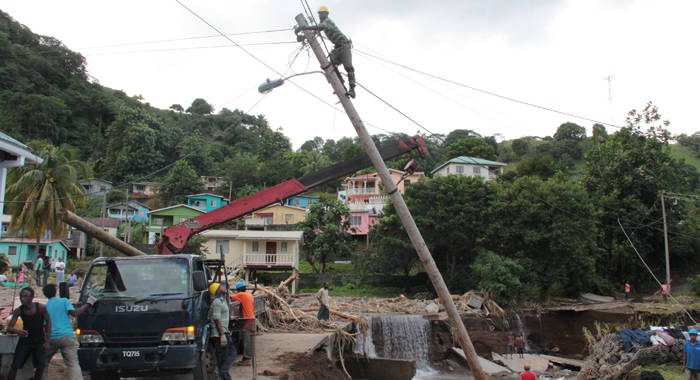PROVIDENCIALES, Turks and Caicos Islands — The Caribbean Development Bank (CDB) says it will provide funding to help the Government of St. Vincent and the Grenadines improve the resilience of its hydropower electricity infrastructure to climate-related and geophysical hazards.
The bank’s board of directors approved the technical assistance project, which will also include financing for a climate risk vulnerability assessment and a multi-hazard risk profile for the country’s electricity sector.
“This project will help the Government of St. Vincent and the Grenadines better define the risks facing the electricity sector and provide information that will help it identify measures to reduce the sector’s vulnerability to climate change and other natural hazards,” said O’Reilly Lewis, division chief, Economic Infrastructure Division, CDB.
The government of SVG has placed high priority on increasing the resilience of the electricity sector to climate events. This follows the impact of a number of storm events in the last five years, which have caused over US$10 million worth of damage the country’s electricity infrastructure.
The study to be undertaken under the project aims to strengthen the capacity of St. Vincent and the Grenadines to provide electricity infrastructure that is resilient to natural hazards and climate change impacts. In addition, its findings will inform the design of a technically and economically feasible project to improve the reliability of the country’s hydropower electricity infrastructure and make it more resilient to geophysical and climate-related hazards.
The project will be financed through a 647,700 euros grant provided by CDB under the African Caribbean Pacific – European Union – Caribbean Development Bank Natural Disaster Risk Management (ACP-EU-CDB-NDRM) in CARIFORUM countries contribution agreement, and through contributions by the Government of St. Vincent and the Grenadines.
The project aligns with the purpose and objectives of African Caribbean Pacific – European Union – Natural Disaster Risk Management (ACP-EU-NDRM) and CDB’s Climate Resilience Strategy 2012-2017, which prioritises the mainstreaming of climate change adaptation into sectoral policies, strategies and plans. The initiative also supports the government of SVG’s progress on Sustainable Development Goals 9 and 13, which are to build resilient infrastructure, promote inclusive and sustainable industrialisation and foster innovation, and to take urgent action to combat climate change and its impacts, respectively.






